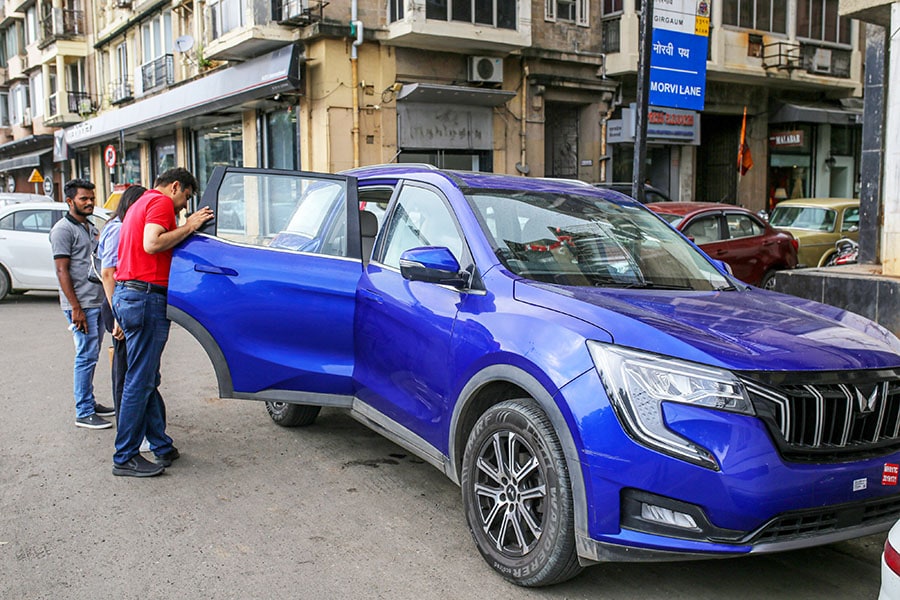
Morning Buzz: SUV sales set to cross 2 million in 2023; food inflation above 'comfort' level; and more
As of September 2023 year-to-date, SUVs accounted for 47 percent of the total sales of cars in India; food inflation was at 6.62 percent in October, while retail inflation was pegged at 4.87 percent
 (File photo) Customers browse a Mahindra & Mahindra Ltd.'s XUV 700 Sports Utility Vehicle (SUV) parked along a street outside a company's dealership in Mumbai, India, on Wednesday, Aug. 3, 2022. Image: Dhiraj Singh/Bloomberg
(File photo) Customers browse a Mahindra & Mahindra Ltd.'s XUV 700 Sports Utility Vehicle (SUV) parked along a street outside a company's dealership in Mumbai, India, on Wednesday, Aug. 3, 2022. Image: Dhiraj Singh/Bloomberg
RBI tells Bajaj Finance to stop lending under ‘eCom’ and ‘Insta EMI’ loans immediately
The regulator has asked NBFC Bajaj Finance to stop lending under the ‘eCom’ and ‘Insta EMI’ loan products with immediate effect, due to non-adherence to the extant provisions of the Reserve Bank of India’s (RBI) digital lending guidelines. It particularly means there was non-issuance of key fact statements to the borrowers under these lending schemes. Bajaj Finance, while complying with the action taken, has not disclosed how much these two products contribute to its overall sales engine.
(Economic Times, Moneycontrol, BQ Prime, Mint)
SUV sales set to cross 2 million in 2023
Demand for SUVs, which has been sustained in the past five years, is likely to continue to grow. As of September 2023 year-to-date, SUVs accounted for 47 percent of the total sales of cars in India, compared to 23 percent in 2018. Consumer preferences towards SUVs has been changing, income levels have improved, besides road conditions and safety measures in these cars.
(Moneycontrol)
Food inflation above ‘comfort’ level: Government official
Food inflation levels in India are still above the ‘comfort’ level, a government source says, despite the slight easing in overall retail inflation levels for October. Retail inflation in India is pegged at 4.87 percent in October, near the RBI’s expected band, but food inflation—which forms nearly half of the consumer price basket—was much higher at 6.62 percent. The government is sensitive to this and does not want food prices to surge prior to key assembly elections and the general elections next year. Earlier this year, it resorted to banning export of wheat and rice to curb prices.





